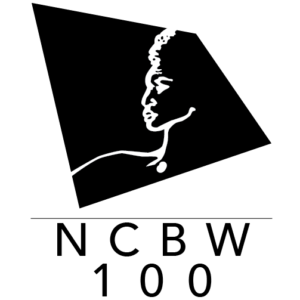Our History of Advocacy and Impact
In the winter of 1970 in New York City, 24 Black women, led by visionary Edna Beach, began meeting in their homes to assess the problems and opportunities left behind in the wake of the turbulent 1960s. For the rest of the 1970’s, they slowly, but persistently worked to master root causes of issues that affected their families, their communities and themselves.
Naming themselves the Coalition of 100 Black women, they boldly began to reach out to other Black Women in common cause and, eventually, mobilized their emerging stature as a visible force of influence. As the Coalition gained recognition, Black women from other parts of the country inquired about duplicating its programs in their city. These requests triggered it to explore the possibility of expanding to a national organization.
In 1973, the New York Coalition’s board of directors sent three members, (Jewell Jackson McCabe, Patricia Henley and Tracey Nicholas) to the National Black Political Convention in Little Rock, Arkansas, to assess the need for a National Coalition of 100 Black Women. Upon their return, the three women, reported that there was indeed a need to expand the Coalition into a national organization. It was noted that all elements of the New York City group could easily be adapted and duplicated in any American city.
By the beginning of the next decade, that influence had become a national movement. On October 24, 1981, 45 representatives from 14 states and the District of Columbia responded to the New York Coalition’s nationwide call to develop a leadership forum for professional Black women from the public and private sectors. Led by Jewell Jackson McCabe, a past president of the New York Coalition and the first president of the National Coalition of 100 Black Women (NCBW), this network of Black Women joined together to meet the professional needs of the contemporary Black woman by facilitating her assess to mainstream America and to meet the needs of the community.
Today, the national movement has grown to more than 60 chapters representing 28 states and the District of Columbia. In profile, the typical Coalition woman has completed college, holds a professional position, earns a median income of $60,000, is age 40 and under and is integrally involved in the socioeconomic and political matrix of her respective community.
The San Francisco Chapter was chartered August 28, 2004 by I. Lee Murphy Reed.
The purposes of the National Coalition are these:
- To foster principles of equal rights and opportunities,
- To develop the potential of the membership for effective leadership and participation in civic affairs,
- To take action on specific issues of national and international importance and
- To cooperate with other persons and organizations to achieve mutual goals.
Structured for Action
NCBW is committed to being a united voice for more than 22 million Black women in the United States.
- As a leadership forum it serves as a role model to help elevate the quality of life for young Black Women and other Black women in transition
- As an organization of career (professional and volunteer) women, it draws upon the strength of its membership to work toward solutions on issues of concern to the contemporary Black Woman.
- As a network, it serves as a vehicle of communication among Black women for their own personal and professional development.
- As an advocacy group, it collectively seeks the political and economic empowerment of Black women as a means of gaining access to main stream America.
In line with these objectives, the National Coalition has set the following as target areas for program development over the coming years:
- Political Action and Voter Mobilization
- Economic Development
- Personal and Professional Development
- Role Model/Mentor Projects
- Influencing and Shaping
Public and Private Policy
To achieve its targeted goals, NCBW works to develop alliances with leadership from corporate, civic, political and government entities and to build a consensus among special-interest groups. Moreover, this national organization, created to serve as the eyes, ears and voice for all Black women, positions itself as a complement to the strong heritage of existing Black women’s organizations that share its goals.
